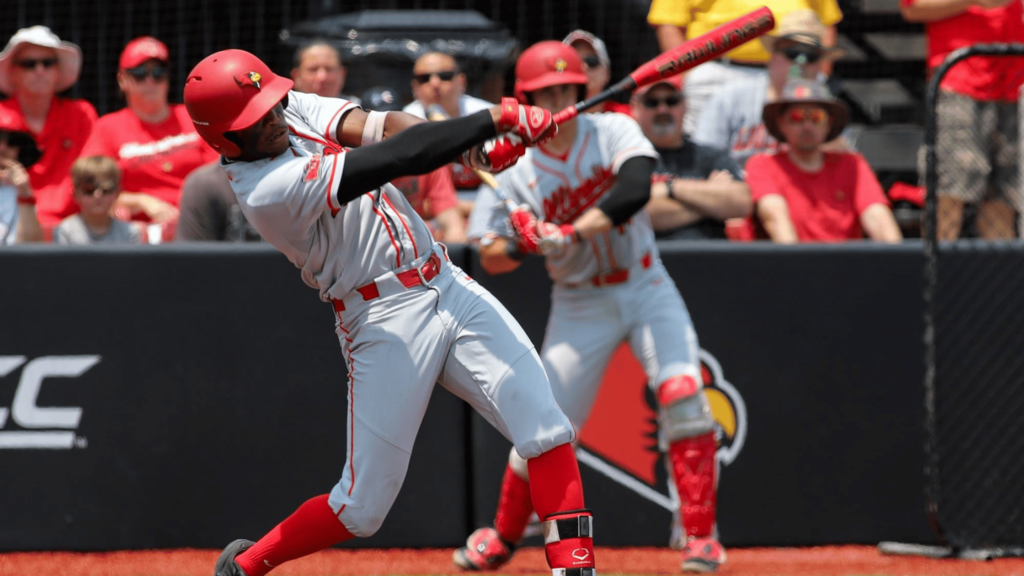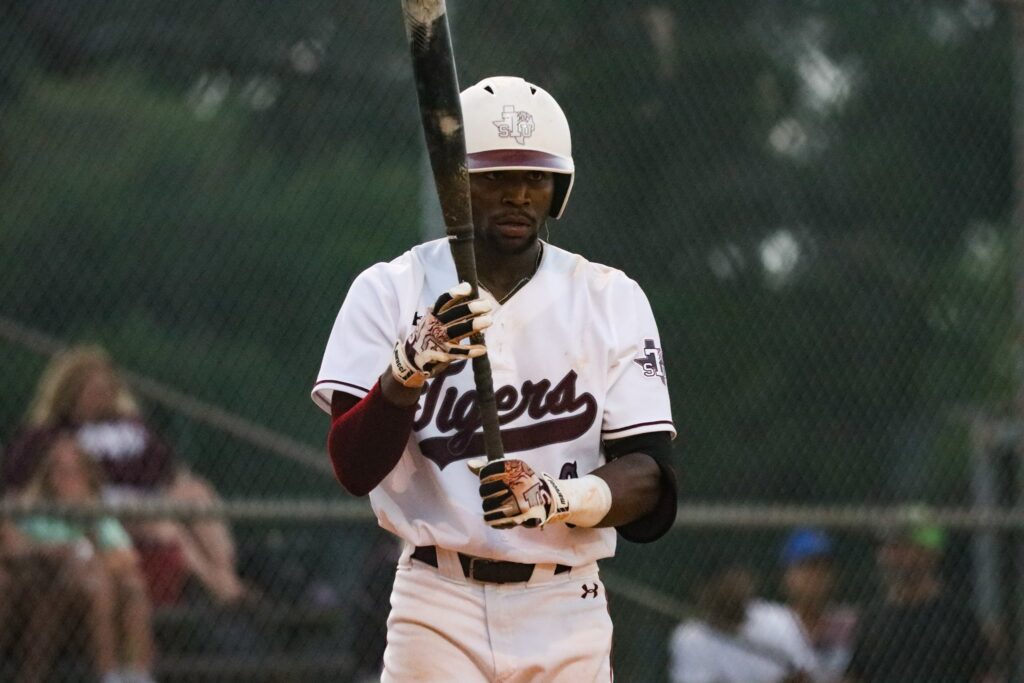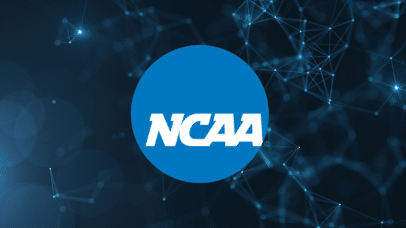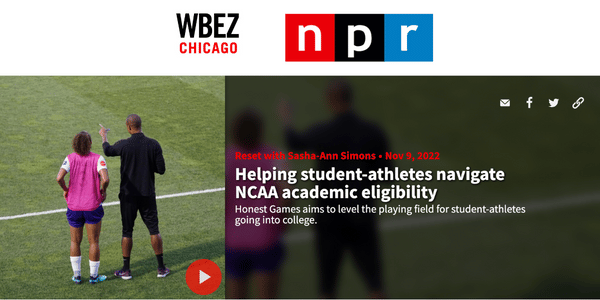Real Life of a Student-Athlete – Entering the NCAA Transfer Portal
Updated on Aug 8, 2023

There is a lot of talk about recruiting and eligibility for college sports, but what happens when student-athletes get there and want to transfer?
In an earlier Honest Game blogged we talk about what happens when you enter the NCAA transfer portal. While the decision to transfer has become more popular in recent years, student-athletes must understand that the decision can involve long-lasting implications for their collegiate athletic and academic career.
What happens when a student-athlete decides to make the leap to another college? We talked with Jeremy Gaines, a graduate student-athlete at Texas Southern University and member of the school’s NCAA Division I (DI) baseball team, as he shares his own journey of playing college sports and his experience as a transfer student. Jeremy recently graduated with a Master in Sports Management and was selected to play in the 2022 Minority Baseball Prospects HBCU All-Star game.
How did you begin your journey as a collegiate student-athlete and how did it evolve?
During high school, my Academic Counselor would constantly remind me that I needed to achieve at least a 2.3 GPA to be eligible for NCAA DI athletics, while also instilling the idea that a higher GPA would increase my chances to receive additional scholarship opportunities.
Through conversations with my Academic Counselor, I learned the importance of being prepared for the ACT and SAT tests and how they related to the academic eligibility status required to play collegiate sports.
With the help of my high school Assistant Athletic Director, I was able to confirm my status as a full qualifier for initial eligibility for the NCAA DI level.
During my sophomore year in high school, I verbally committed to play baseball at the University of Missouri. Unfortunately, right before I was to sign my National Letter of Intent (NLI), the coach that recruited me left for another position at a different school and I was informed that I was not included on the new coach’s recruiting roster.
At that time, my travel team baseball coach recommended that I attend a junior college (JUCO) in order to continue on my pathway to play for an NCAA DI baseball program. With the help of my travel team coach reaching out to the school, I was recruited to play at John A. Logan College, a junior college in Carterville, IL. After the initial introduction, I was invited by the Head Baseball Coach at John A. Logan College to visit their campus and decided it would be the perfect fit. The process of committing to the JUCO school took only two weeks, which was expedited due to my high school senior year ending.
I attended and competed for one year at John A. Logan College before I was recruited by Illinois State University (ISU), an NCAA DI school. I played for three seasons at ISU before entering the NCAA Transfer Portal and transferring to Texas Southern University, where I finished my final year of eligibility as a Graduate Student. This Fall I am returning to ISU to complete my Master’s Degree in Sport Management.
What do you wish high school student-athletes knew about the college recruiting process?
I wish high school student-athletes understood that seeking help in any form is not a bad thing and will help make the transition easier. As a student-athlete, it is hard to handle the pressures and logistics of school work, recruiting process, and understanding eligibility rules, all while competing in athletics during high school.
The importance of using your resources and staying on top of everything is vital in making the transition from high school to college athletics seamless.
Another thing high school students should be aware of is that the athletic recruitment process is like “a game within a game”. Every school and coach is trying to put their best foot forward to sell you on their program and institution being superior to others.
I would say don’t get too caught up in this “game” and ultimately attend a school that is a great fit for YOU. The process can be gruelingly long and sometimes seem like it’s not going your way, but remain determined and your perseverance will help you get through the process.
How did you gain the attention of NCAA DI coaches during your time at the JUCO level?
Getting coaches’ attention is important in the recruiting process and the accolades I received during my first year at JUCO did help, but it didn’t ultimately determine whether I got into a new school.
What did help the most was my positive character and the recommendation my JUCO coach was able to give when speaking with potential coaches. I made sure that my work ethic and character were noticed by my JUCO coach and when the time came for DI coaches to inquire about me, my JUCO coach had nothing but good things to say.
Character and talent, on top of accolades, are what helped me a lot in the recruiting process.
Who did you tell about your intent to transfer schools?
My head coach at John A. Logan College understood from the beginning that my goal was to transfer to an NCAA DI school. He was also the team’s academic coordinator and had a solid understanding of the transfer process and the academic eligibility requirements to compete at the next level. He also understood the classes at my JUCO that would be applicable towards my major at my new school.
Once I completed my undergraduate degree at ISU, the Compliance/Academic Coordinator helped me with the process of entering the NCAA Transfer Portal and helped me take the steps to become a “4-4 Transfer Student”.
My understanding is that for some students looking to transfer, their privileges are revoked as soon as they enter the Transfer Portal. My experience was the opposite, as I had built a good relationship with my Compliance/Academic Counselor at ISU and they were familiar with my family since my sister had the same counselor when she was also a student-athlete at ISU.
What were the logistics of adding your name to the NCAA Portal?
I first sent an email to my head coach explaining that after I receive my undergraduate degree, I would like to transfer to complete my final year of playing eligibility. I also emailed the school’s Compliance Office to request to be added to the Transfer Portal.
How long did the NCAA Transfer Portal process take after informing your Compliance Counselor that you’d like to enter?
My initial expectations were that it would take at least a week to be officially entered in the Transfer Portal, however, after two days I received an email notification that my name and contact information was officially posted in the NCAA Transfer Portal.
I understood that I would be able to communicate with coaches once I entered the Transfer Portal, but I was unsure if coaches would be making the first contact or if I would have to initiate conversations. I was a bit nervous at first, but once I exhausted all available resources, it became clear that I would end up exactly where I ultimately wanted to be.
Also, once I entered the Transfer Portal I continued to receive academic services and had access to the athletic department’s study hall, locker room, weight room, and athletic training room.
How much time passed between entering the Transfer Portal and a coach contacting you?
I entered the portal in June and began receiving communication from DI coaches in July. Coaches mainly contacted me via phone either by calling or text, however, a few reached out to me on social media as well.
The initial discussions were brief but primarily focused on my past athletic achievements and my academic status and goals.
I always found it beneficial to talk about academics first, before easing into the sport-specific details. One of the first things I brought up in the conversations was whether or not their school had my graduate major. Once we covered academics, the conversations turned more towards baseball and their team’s playing philosophy.
How much time passed between entering the Transfer Portal and committing to a new school?
After speaking with five coaches at several different schools, I verbally committed to my new school about six weeks after initially entering the Transfer Portal. It wasn’t until after I verbally committed that I visited the new campus and met the head coach and two assistant coaches.
How did you prepare for the process of entering the Transfer Portal?
My school (ISU) required all athletes to watch the NCAA Transfer Module video before declaring to enter the Transfer Portal. I found it to be extremely helpful and helped me to understand the process and the necessary requirements – making it easier to understand prior to diving into it. Once I decided I would be entering the Transfer Portal, my Academic Counselor at ISU continued to lead me through the steps required in the process.
Did anyone assist you with counting the number of credits that would transfer and be degree applicable at your new school?
The Academic Counselors at both schools (new and old) were extremely helpful in making sure that my credits were transferred and were degree applicable, however, the schools did not communicate directly and I needed to advocate for myself by relaying the information between the schools through emails and over the phone.
What would you recommend for student-athletes without the support of a “village”?
It’s important for student-athletes to have a “can-do” attitude.
First, I would recommend planning out what they want to happen (realistically) in the next two years, then focusing one by one on ways to help them get to that point down the road.
It is important to only focus on one thing at a time to not be overwhelmed or burned out from the gravity of their goals. They will be on the right track by making small progress each week toward their individual goal.
Even though not having a support system is challenging, in some ways it might elevate student-athletes to handle more adversity by making them a stronger individual that will be able to handle any situation in their sport or in life itself.
That being said, being able to use Honest Game as a high school student-athlete would tremendously help to create a support system that directly impacts students and helps their academic eligibility stay on track to compete in college sports.
Not only would Honest Game provide guidance for academic eligibility, but it could also support their mental health by reducing the stress student-athletes typically face when they are preparing for the college admissions and athletic recruiting process.
No matter the student – if they are struggling in classes or have a 4.0 GPA, Honest Game will help guide them on their pathway to college eligibility.
Have questions about entering the Transfer Portal or interested to know where you or your student-athletes’ academic eligibility status stands? Honest Game Counselors are available to provide one-on-one assistance to support student-athletes navigating their college opportunities athletically and academically. Schedule a time to meet virtually with our experts.





